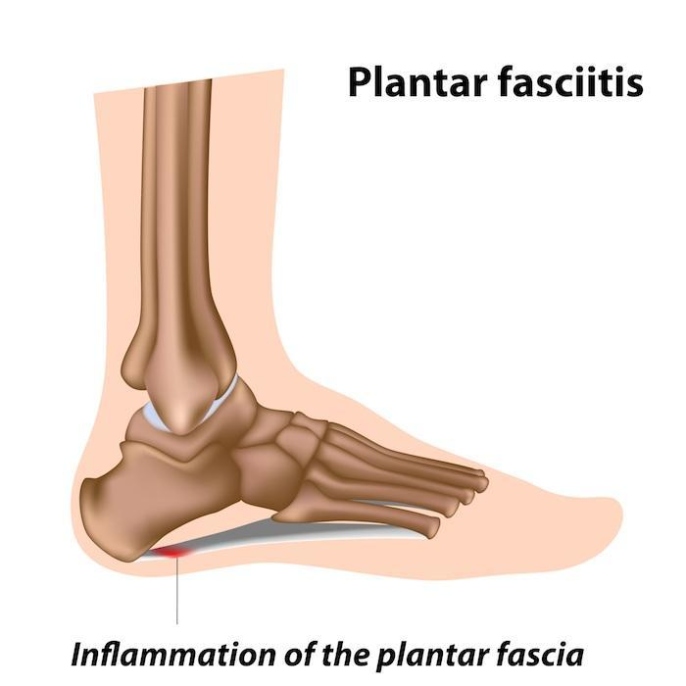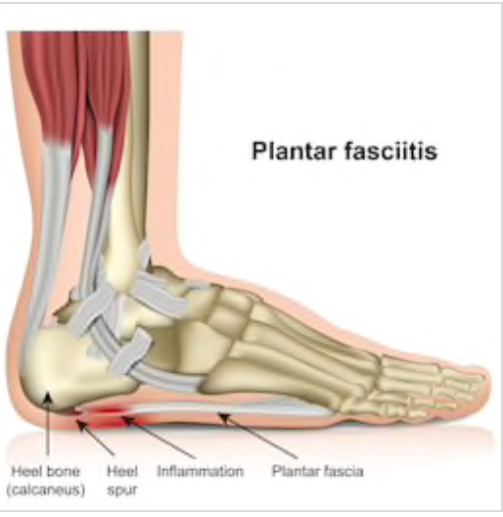How to Avoid Plantar Fasciitis
What do you mean by Plantar Fasciitis?
Plantar fasciitis is a common foot condition that causes pain in the heel and bottom of the foot. It occurs when the plantar fascia, a thick band of tissue that connects the heel bone to the toes, becomes inflamed or irritated. This condition is often characterized by a sharp, stabbing pain that is most severe in the morning.
How can Plantar Fasciitis be Avoided?

Image Source: patientpop.com
There are several ways to prevent plantar fasciitis from developing or worsening. By taking proactive measures and making lifestyle changes, you can reduce your risk of experiencing this painful condition.
What is known about Plantar Fasciitis?

Image Source: wphphysio.com.au
Plantar fasciitis is a common issue that affects millions of people worldwide. It is often seen in athletes, runners, and individuals who spend long periods on their feet. The condition can be caused by a variety of factors, including wearing improper footwear, having tight calf muscles, or being overweight.
Solution to Avoid Plantar Fasciitis:

Image Source: mayoclinic.org
There are several steps you can take to prevent plantar fasciitis. One of the most important things you can do is to wear supportive shoes that fit properly and provide cushioning for your feet. Avoid high heels and shoes with inadequate arch support, as these can put additional strain on your plantar fascia.
Stretching exercises can also help prevent plantar fasciitis by keeping your calf muscles and Achilles tendon flexible. Regularly stretching your feet and calves can help reduce tension in the plantar fascia, reducing your risk of developing this painful condition.
Maintaining a healthy weight can also help prevent plantar fasciitis. Excess weight puts additional pressure on your feet and can increase your risk of developing foot problems. By eating a balanced diet and exercising regularly, you can reduce your risk of experiencing plantar fasciitis.
Information about Plantar Fasciitis:
Plantar fasciitis can be a debilitating condition that can impact your daily life. If left untreated, it can worsen over time and make simple tasks like walking or standing painful. By taking steps to prevent plantar fasciitis, you can avoid the discomfort and inconvenience that comes with this condition.
How to Avoid Plantar Fasciitis:
There are several things you can do to avoid plantar fasciitis and keep your feet healthy. By following these tips, you can reduce your risk of developing this painful condition and enjoy a life free from foot pain.
First and foremost, it’s important to wear supportive shoes that fit properly and provide cushioning for your feet. Choose shoes with good arch support and heel cushioning to reduce strain on your plantar fascia and prevent injury.
Stretching your calf muscles and Achilles tendon regularly can also help prevent plantar fasciitis. Incorporate stretching exercises into your daily routine to keep your muscles flexible and reduce tension in the plantar fascia.
Maintaining a healthy weight is another key factor in preventing plantar fasciitis. Excess weight puts additional pressure on your feet and can increase your risk of developing foot problems. By eating a balanced diet and staying active, you can reduce your risk of experiencing plantar fasciitis.
Avoiding high-impact activities that strain your feet can also help prevent plantar fasciitis. If you’re a runner or athlete, consider cross-training to reduce the stress on your feet and give them time to recover. Alternating between different types of exercise can help prevent overuse injuries and keep your feet healthy.
If you’re experiencing foot pain or suspect you may have plantar fasciitis, it’s important to seek treatment from a healthCare professional. Early intervention can help prevent the condition from worsening and reduce your risk of long-term complications. Your doctor may recommend a combination of treatments, including physical therapy, orthotics, and lifestyle modifications, to help alleviate your symptoms and prevent further injury.
Conclusion:
Plantar fasciitis is a common foot condition that can be painful and disruptive to your daily life. By taking proactive measures to prevent this condition, such as wearing supportive shoes, stretching regularly, maintaining a healthy weight, and avoiding high-impact activities, you can reduce your risk of developing plantar fasciitis and keep your feet healthy. If you’re experiencing foot pain or suspect you may have plantar fasciitis, it’s important to seek treatment from a healthcare professional to prevent the condition from worsening and improve your quality of life.
FAQs:
1. Is plantar fasciitis a common foot condition?
Yes, plantar fasciitis is a common issue that affects millions of people worldwide, particularly athletes and individuals who spend long periods on their feet.
2. What are some common causes of plantar fasciitis?
Plantar fasciitis can be caused by wearing improper footwear, having tight calf muscles, being overweight, or engaging in high-impact activities that strain the feet.
3. How can I prevent plantar fasciitis?
To prevent plantar fasciitis, wear supportive shoes, stretch regularly, maintain a healthy weight, and avoid high-impact activities that strain the feet.
4. What are the symptoms of plantar fasciitis?
The most common symptom of plantar fasciitis is a sharp, stabbing pain in the heel and bottom of the foot that is most severe in the morning.
5. How is plantar fasciitis treated?
Treatment for plantar fasciitis may include physical therapy, orthotics, lifestyle modifications, and in some cases, surgery to alleviate symptoms and prevent further injury.
6. Can plantar fasciitis be prevented?
Yes, plantar fasciitis can be prevented by taking proactive measures, such as wearing supportive shoes, stretching regularly, maintaining a healthy weight, and avoiding high-impact activities that strain the feet.
7. When should I see a doctor for plantar fasciitis?
If you’re experiencing foot pain or suspect you may have plantar fasciitis, it’s important to seek treatment from a healthcare professional to prevent the condition from worsening and improve your quality of life.
how to avoid plantar fasciitis









